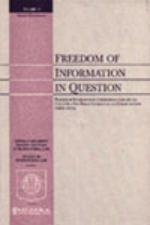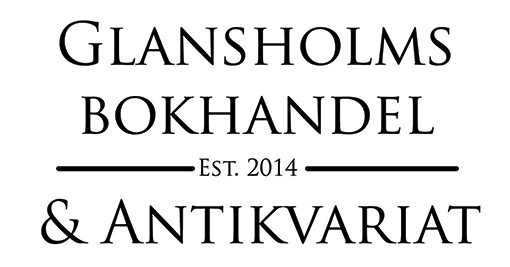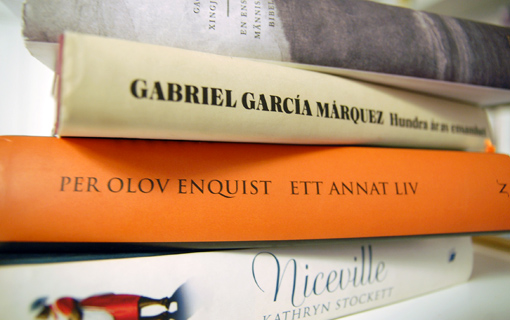
Våra experter hjälper dig eftersöka "Freedom of Information in Question" - utan extra kostnad
Glansholms Antikvariat har många tusentals böcker på lager - och över 10 miljoner böcker hos våra underleverantörer. Vi har en unik service till dig - efterlys boken och våra experter eftersöker den åt dig och återkommer inom några dagar.
Vad kommer boken att kosta? Normalpriserna för efterlysta böcker ligger mellan 120 kr och 380 kr beroende på utgåva, skick, tillgång, etc. Vi kan inte lämna ett pris förrän vi bedömt det enskilda exet. Har vi boken inne kan det ibland bli billigare och rariteter har ofta ett högre värde, att en bok är kostsam hindrar oss inte från att eftersöka och reservera den för våra kunder.
Är en efterlysning bindande? Nej, naturligtvis får du se bild, pris och skickbedömning innan du bestämmer dig. Men en efterlysning innebär ofta att vi låter ta in boken på lager och vi är därför naturligtvis tacksamma om du är seriöst intresserad och återkommer när vi kontaktar dig via epost.
Vänligen gör en efterlysning per bok! Varje bok behöver ett eget referensnummer för att vi ska kunna hantera efterlysningen.
Vi behandlar inte efterlysningar av ordinarie kurslitteratur.
 Efterlys "Freedom of Information in Question"
Efterlys "Freedom of Information in Question"Freedom of Information in Question
Av Inger Österdahl

|
Bok- presentation: |
Freedom of Information in Question |
|
Författar- presentation: |
Inger Österdahl |

|
|
Utgåvor
Bokpresentation
The human right to freedom of information consists of the freedom to seek, receive and impart information and ideas of all kinds, through any media and regardless of frontiers. It is considered an indispensable element of a democratic society. This thesis opens with an analysis of the import of freedom of information under various international legal instruments, universal and regional. The second part of the the thesis shows how the developing countries, supported by the former Soviet bloc, began in the 1970s to freedom of information, particularly on the international level. The kind of information in focus was principally news. It was claimed that the free international flow of news led to an unbalanced situation. The big Western news agencies dominating the international news flow were reporting more about the North than the South and their reports about the South were biased. To remedy the imbalances the developing countries, headed by the Movement of No- Aligned Countries, proposed a New World Information and Communication Order (NWICO). This concept is closely related to the New International Economic Order (NIEO). The proposed NWICO included both normative and practical components. The normative part of the NWICO claims included such elements as guidelines for the content of international news reporting and far-reaching state responsibility for internationally distributed news. The practical part implied the strengthening of the developing countries own mass media. The idea of a NWICO caused a sharp reaction among the Western countries. The ensuing debate took place in Unesco and later also in the Committee on Information of the UN General Assembly. The debate turned on the issues of freedom of information, state responsibility for the activites of the mass media, state sovereignty an non-interference in the internal affairs of states. Opinions also differed concerning the role of the media in society. The third and final part of the thesis deals with the outcome of the demands for a NWICO. The normative efforts of the NWICO proponents resulted in the Mass Media Declaration are analyzed in detail. A resolution spelling out the basis of a NWICO was also adopted by Unesco in 1980. The practical demands made in the name of a NWICO resulted in the creation of the International Programme for the Development of Communication (IPDC) under the aegis of Unesco. Owing to its controversial nature the actual concept of a NWICO eventually disappeared from the agenda of Unesco by the end of the 1980s. A similar development can be seen in the debates and resolutions of the UN Committee on Information. The international debate on freedom of information will surely continue , however, but henceforth in different terms than a New World Information and Communication Order.
Bok: 147788
 Anmäl textfel
Anmäl textfel





